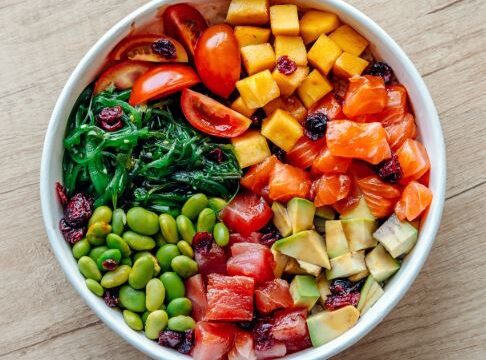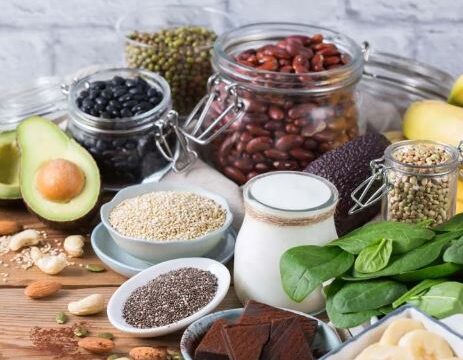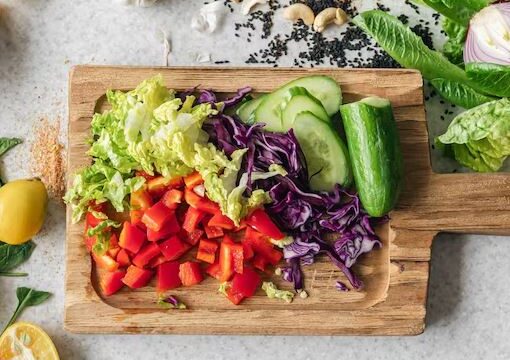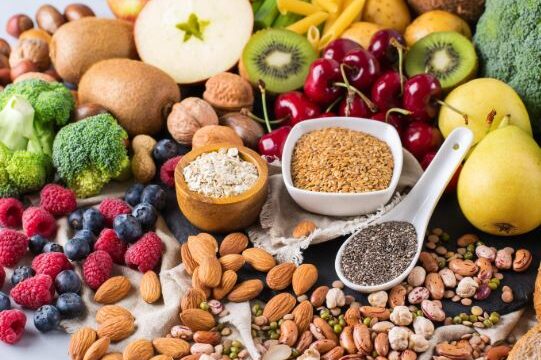Staying calm during meetings is something many people in the United States strive for, especially in workplaces where collaboration, presentations, and negotiations are part of daily life.
Whether you are leading the discussion or quietly taking notes, your mental state can influence how well you communicate and process information.
Food plays a surprisingly important role in this.
What you eat before a meeting can either fuel calm, steady thinking or contribute to nervous energy and restlessness. Understanding which foods support a relaxed, focused mind can help you approach meetings with greater ease. The connection between food and mood is well established in nutrition science. Certain foods can promote steady blood sugar levels, while others help regulate neurotransmitters that affect mood and focus. The goal is to choose meals and snacks that stabilize your energy and encourage a clear head. This way, you walk into the conference room or join a virtual meeting ready to listen, contribute, and handle unexpected moments with grace. One of the best categories of foods to rely on is whole grains. Brown rice, quinoa, and oats release energy slowly, preventing the sudden highs and lows that come from sugary or refined foods. When blood sugar dips in the middle of a meeting, it can make you feel irritable or distracted. By choosing whole-grain toast with nut butter in the morning or a quinoa salad at lunch, you give your brain steady fuel that helps you stay calm and alert. These foods are also rich in B vitamins, which play a role in supporting a healthy nervous system. Another calming food group is leafy greens. Spinach, kale, and Swiss chard contain magnesium, a mineral often associated with relaxation and stress management. Magnesium helps regulate the nervous system and supports the production of neurotransmitters that keep the brain balanced. Including a side salad at lunch or adding greens to a smoothie before an afternoon meeting can make a noticeable difference in how centered you feel. For those who prefer a warm option, sautéed greens with olive oil and garlic can be both nourishing and comforting. Nuts and seeds are also excellent choices for maintaining a calm mind during meetings. Almonds, walnuts, chia seeds, and pumpkin seeds provide healthy fats, protein, and trace minerals. These nutrients work together to stabilize mood and keep you feeling satisfied, so hunger does not distract you in the middle of an important conversation. Walnuts, in particular, contain omega-3 fatty acids, which have been linked to improved emotional balance. A small handful of nuts before a meeting can be a quick and effective way to prepare mentally. When it comes to beverages, many people reach for coffee before meetings to stay alert. While coffee has its benefits, too much caffeine can make nerves worse, especially if the meeting involves high-pressure topics. A calmer option is green tea, which contains both caffeine and the amino acid L-theanine. L-theanine promotes a sense of relaxation without drowsiness, making green tea a thoughtful choice for maintaining composure while still staying sharp. Herbal teas like chamomile or peppermint can also help settle the mind, especially if consumed in the hour leading up to a meeting. Fruits also have a special role in promoting calmness. Berries, oranges, and kiwis are high in vitamin C, which helps regulate cortisol, the body’s main stress hormone. Keeping stress levels in check can make it easier to respond thoughtfully during discussions. Bananas are another great option because they contain potassium and vitamin B6, both of which support steady nerve function. Having a banana as a mid-morning snack before an early meeting is simple, convenient, and effective for mental balance. Protein-rich foods are key for focus and calmness as well. Eggs, beans, lentils, and fish provide amino acids that help the body produce serotonin and dopamine, two neurotransmitters that regulate mood. Salmon and other fatty fish are particularly valuable because they combine protein with omega-3 fats, creating a double benefit for the brain. In the United States, where workplace lunches often lean toward sandwiches or fast meals, swapping processed meats for a grilled salmon wrap or lentil soup can be a healthier way to prepare for a big meeting. Avocados are another food worth mentioning. Their creamy texture and rich nutrient profile make them both satisfying and beneficial for brain health. Avocados contain monounsaturated fats, which support blood flow to the brain, as well as potassium and magnesium, which help manage stress responses. Sliced avocado on whole-grain toast or mixed into a salad offers calm energy that carries through the afternoon. Dark chocolate, when enjoyed in moderation, can also help keep the mind steady. It contains compounds that promote relaxation and increase serotonin levels, while also offering antioxidants that support brain health. Choosing a small square of dark chocolate with at least 70 percent cocoa content can provide a pleasant boost without overwhelming your system with sugar. It is also worth noting what foods to limit before important meetings. Sugary pastries, heavily fried foods, and drinks with excessive caffeine or added sugars can cause energy crashes, jitters, or irritability. While they may seem comforting at the moment, their long-term effects during a meeting are usually less than ideal. Choosing nourishing, balanced foods instead gives you a sense of control over your focus and emotions. Preparing for a calm meeting does not mean making dramatic changes to your diet all at once. Small, thoughtful choices can build a pattern of better mental balance. For example, replacing a sugary muffin with a bowl of oatmeal topped with berries in the morning can set the tone for a calmer day. Bringing a small container of nuts to work instead of relying on vending machine snacks ensures you have a steadying option within reach. Even replacing one daily cup of coffee with green tea can have noticeable effects on how you feel during discussions. In American workplaces, meetings are often part of daily schedules, whether in person or online. The fast pace of professional life can sometimes make it easy to overlook how nutrition affects performance. Yet by making food choices that promote calmness, you not only benefit yourself but also contribute to a smoother group dynamic. A calm presence encourages thoughtful conversations and helps reduce tension, making collaboration more effective. Ultimately, food is a quiet but powerful tool for preparing your mind for meetings. Whole grains, leafy greens, nuts, seeds, calming teas, fresh fruits, and lean proteins all provide nutrients that steady the brain and encourage composure. When combined with mindful eating habits and proper hydration, they give you the foundation to walk into any meeting with confidence and calm energy. By choosing foods that support relaxation, you can transform meetings from moments of stress into opportunities to connect, learn, and contribute with clarity.






